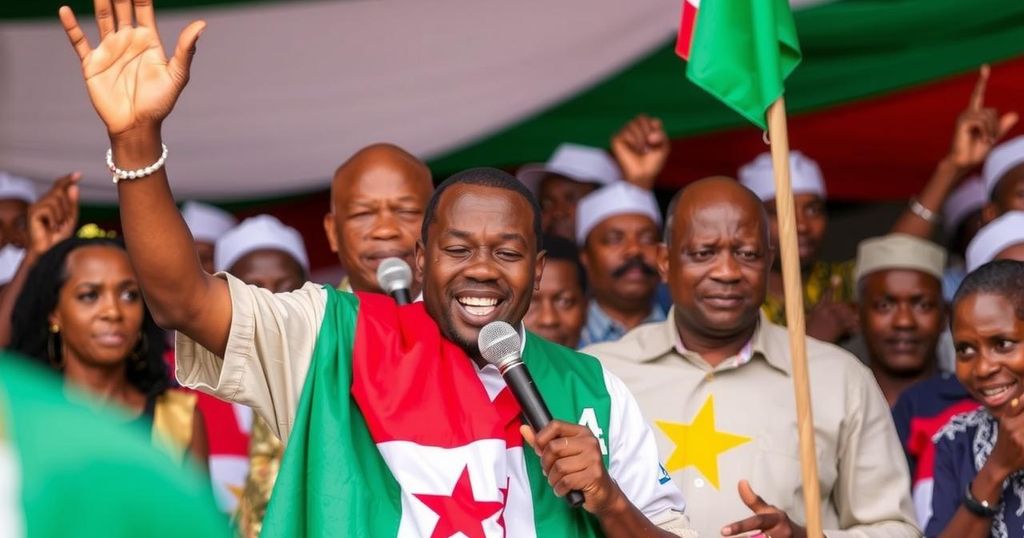Chad’s Ruling Party Secures Majority Amid Opposition Boycott in Elections

Chad’s ruling party, the Patriotic Salvation Movement, has won a decisive majority in the parliamentary elections, securing 124 of 188 seats with a 51.5 percent voter turnout. The elections faced opposition boycotts, raising questions about their legitimacy and the future of democracy in Chad amidst security challenges. This election is a significant move in the country’s transition to a more decentralized government under President Mahamat Idriss Déby.
In the recent parliamentary elections, Chad’s ruling Patriotic Salvation Movement (PSM) overwhelmingly secured a majority, winning 124 out of 188 seats, according to provisional results. This electoral success strengthens President Mahamat Idriss Déby’s hold on power, following the boycott of the polls by prominent opposition parties. The elections, which marked the first parliamentary contest in over a decade, saw a voter turnout of 51.5 percent amidst claims of electoral fraud and concerns of legitimacy raised by the opposition, including the Transformers party, which notably abstained from participating. President Déby characterized the elections as a pivotal step towards decentralization intended to distribute political power more equitably across the nation, a sentiment that remains contested among dissenting parties who criticized the election as a mere façade devoid of meaningful democratic engagement.
Despite the absence of opposition, which notably included the Transformers party led by the prominent candidate Succès Masra, who previously secured second place in the presidential elections, formal reactions to the provisional results from the opposition have yet to be articulated. This election serves as a significant juncture for Chad, a nation currently grappling with extensive security challenges, including violent extremist threats from Boko Haram and the cessation of a long-standing military alliance with France.
Chad has faced a tumultuous political landscape, particularly following the death of longtime leader Idriss Déby Itno in 2021, which led to the assumption of power by his son, Mahamat Idriss Déby. The latter’s tenure as a military ruler was marked by calls for democratic reforms and national stability. The December 2023 parliamentary elections were a critical step in the country’s stated transition to democracy, representing the first of its kind in more than ten years, amidst ongoing security threats and geopolitical tensions. The ruling party’s majority further cements President Déby’s authority while raising questions regarding the democratic process in Chad, particularly in light of the significant opposition boycott.
The results of Chad’s parliamentary elections highlight a critical moment in the country’s political evolution, where the ruling party’s majority contradicts the absence of meaningful opposition engagement. While President Déby has framed the elections as a historic step towards decentralization, skepticism from boycotting parties suggests a significant divide in perceived legitimacy. The ongoing security challenges and intricate relations with former colonial powers like France compound the complexity of Chad’s trajectory towards democracy.
Original Source: www.rfi.fr







